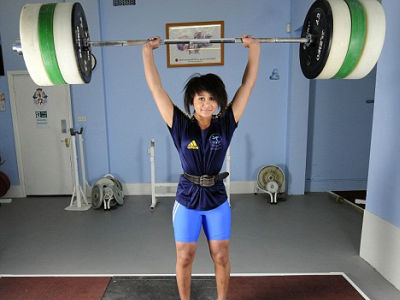What Olympic sport burns the most calories?

The 33rd Summer Olympics will be held in Paris, France from July 26 to August 11, 2024, with athletes from more than 200 countries competing in more than 300 events. Live Science, a scientific media outlet, explains which sport burns the most calories in the various sports events held at the Olympics, including track and field, swimming, skateboarding, judo, and fencing.
Which Olympic sport burns the most calories? | Live Science
https://www.livescience.com/health/exercise/which-olympic-sport-burns-the-most-calories
When considering which sport burns the most calories, it is necessary to consider whether it is the total energy expended over the entire event or the maximum instantaneous amount of energy required during a particular challenge. This time, Live Science compares sports by their 'activity energy cost.'

Activity energy cost is defined as the number of calories burned per hour per kg of body weight. For example, if an athlete weighing 84 kg exercises with an energy cost of 2.0 kcal/kg per hour, he or she will have burned 168 kcal.
According to the Physical Activity Guidelines for Americans published by the US Department of Health and Human Services (PDF file) , the activity energy cost for an adult at rest is 1 kcal/kg per hour, and activity exceeding 6 kcal/kg per hour is classified as 'vigorous activity'.
Among the events held at the Paris Olympics, track events had the highest energy cost, and the 100m sprint in particular consumed a large amount of calories in a short period of time. According to a study by Professor Pietro Di Prampero, a physiologist at the University of Udine in Italy, when Usain Bolt recorded the world record time of 9.58 seconds for the 100m sprint, his energy cost for activity in the first 0.85 seconds was 91.2 kcal/kg per hour.

'Of course the 100m sprint is the most demanding activity in terms of energy cost, but in terms of overall energy expenditure, running a 42.195km marathon consumes much more energy,' says Professor Di Prampero.
According to Professor Di Prampero, Eliud Kipchoge , who won the gold medal in the men's marathon at the 2021 Tokyo Olympics, weighed about 52 kg and consumed 2,339 kcal by the time he reached the finish line. The time was 2 hours, 8 minutes, and 38 seconds, so the activity energy cost was calculated to be about 21 kcal/kg.

According to a study published in January 2024, the energy cost of cycling at speeds over 20 miles per hour is calculated to be 16.8 kcal/kg per hour. Rowing , martial arts, and trampoline require 15.5 kcal/kg per hour, 10.5 kcal/kg per hour, and 10.3 kcal/kg per hour, respectively.
Swimming, which involves large body movements against the resistance of water, is known as a classic exercise that burns a lot of calories and is even included in diet programs. However, the energy cost of this activity varies depending on the swimming style and the athlete's skill level.

'For top swimmers, the most demanding stroke is breaststroke, then butterfly, then backstroke and the most economical stroke is freestyle,' says Professor Tiago Barbossa, a sports scientist at the Polytechnic University of Bragança in Portugal.
According to a study published by Professor Barbossa in 2006, the energy cost of swimming breaststroke at 1.6 meters per second was about 30.4 kcal/kg per hour. This speed of 1.6 meters per second is slightly slower than the speed of Adam Peaty of the UK, who won the gold medal in the men's 100m breaststroke at the Tokyo Olympics and the Paris Olympics.
In addition, in open water such as the ocean or river, there are waves and wind, unlike in a pool, and athletes may be exposed to low temperatures, so it is thought that more energy is required.
Of course, the cost of calories burned varies from person to person, with some people expending less energy to perform the same activity and others expending more. 'To be honest, these are all estimates,' says Professor Di Prampero. 'The figures for the energy cost of activities can vary widely from person to person.'
He also states, 'Even if the average athlete consumes an energy cost of 1 kcal/kg per hour, a good runner might consume 0.95 kcal/kg, and if they are wearing good shoes and clothes, that might be as low as 0.83 kcal/kg. In track and field events, costs can vary depending on whether the ground is wet, and at the Olympic level, a difference of 0.01 kcal/kg can mean the difference between winning a gold medal or not.' It seems that just because an individual has a better energy cost of activity does not necessarily mean they will win.
Related Posts:
in Science, Posted by log1i_yk







